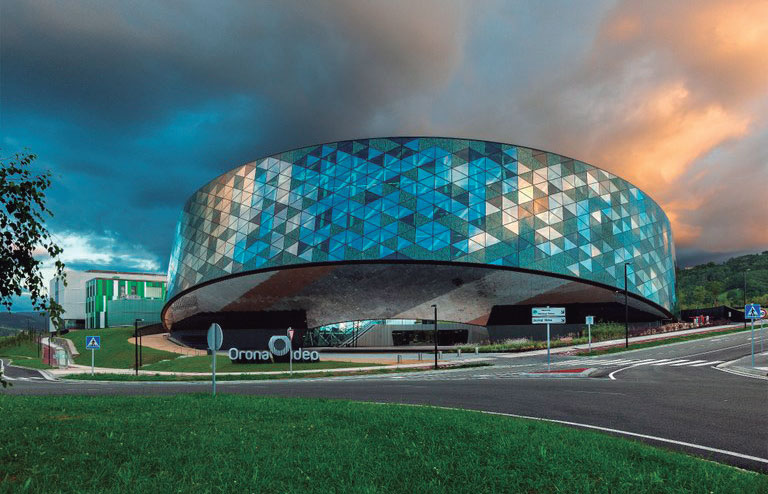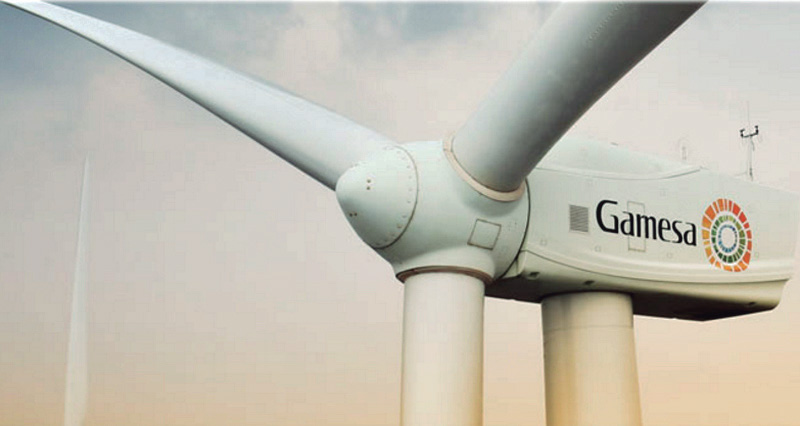PGS
SUSTAINABILITY OF SUPPLY CHAINS IN THE ENERGY SECTOR
VALUE CHAIN MANAGEMENT AS A STRATEGY TOWARDS Sustainable Development has gained importance globally in recent years. In the Basque Country, the environmental performance of the representative Basque industrial fabric was measured using the Bank of Environmental Indicators, but only from a corporate perspective, to enable each company to know its position in relation to the competitors. On the other hand, the EnergiBasque Strategy has identified the importance of improving sustainability management as a differentiating added-value factor, for a large number of companies in the energy sector. Although this affects large corporations fi rst, much of the impact is felt on their value chains, and therefore more integrated work is increasingly needed to make signifi cant improvements.
Participants of the PGS, led by the Basque ENERGY CLUSTER, included the renewable energy leader SIEMENS GAMESA, the lift and ramp manufacturer ORONA, companies from the energy sector, and the consultancy IK INGENIERÍA.

DRIVING FACTOR


 OBJECTIVES
OBJECTIVES
- Define and develop a systematic approach for trailblazing companies to manage sustainability from a value chain perspective.
- Support companies in the value chain to take on board sustainability management concepts to improve their competitiveness and generate new business opportunities.
 RESULTS
RESULTS
- PGS analysis document, which includes a sustainability management system for industrial value chains.
- PGS procedure to characterise the value chains of companies in the energy sector and generate Management Plans.
- Good Practice Report applicable to the industrial field, as an example for companies wishing to improve deficiencies in their value chain.
- Validation of the Procedure in SIEMENS GAMESA and ORONA, by means of a diagnosis of the value chain that includes analysing the current situation, and a report of Programmed Actions to improve the results of the sustainability diagnosis.
- Implementation of the Life Cycle Analysis (LCA) in SIEMENS GAMESA, as an environmental management procedure of wind turbines.
- Upgrading the Eco-design management system in ORONA and ORONA Suite software for a more efficiently transfer of the life cycle information of supplier companies to environmental profiles.
 CONCLUSIONS
CONCLUSIONS
- During the performance of the diagnosis, it became evident that the questionnaire is sufficiently broad to address the sustainability assessment of any company. However, it may be too general for very large or large companies (with established sustainability parameters), as opposed to small companies with little or no experience in such diagnostics.
- Large companies manage global sustainability excellently at the corporate level but have not delved into the potential improvement linked to the life cycle of their products and services. Hence, Management Plans and the resulting Programmed Actions focus on enhancing the collection of data on the life cycles of their products throughout the value chain.
- PGS started the NEOSUB project under the Basque Government’s HAZITEK programme, and as a result electrical substations have been designed and developed based on eco-design criteria, in collaboration with operators, engineering firms and manufacturers of capital goods.
ENVIRONMENTAL
TECHNICAL
ECONOMIC
COMMERCIAL
ON THE MARKET



